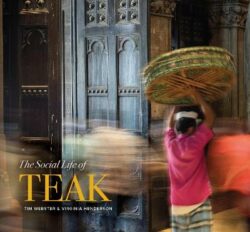A Kind of Magic: Art Deco Vanity Cases
$119.00
Out of stock
Alert me when product is restocked
Description
After 1918, post-war euphoria spread across Europe and America. Technology was changing the pace of life and aeroplanes, motorcars and ocean liners were making the world a smaller place with improved communications. Some were making their fortunes, and for those who could afford it, it was an exciting time of cocktail parties, nightclubs and jazz. Fashion was Paris, elegance, the Paris Expo of 1925 and Art Deco with the lure of the avant-garde; but much of the wealth was in America, represented by the jazz age, glamour, The Great Gatsby and Hollywood. And the emancipated, wealthy, fashionable woman of means wanted newly-designed jewellery and accessories decorated with contemporary motifs to reflect her new status. The vanity case, the ultimate jewelled fashion accessory, was designed and made mostly in Paris by the skilled designers and craftsmen who understood that the fashionable modern woman needed a practical solution to containing her lipstick, powder compact, cigarettes, lighter, theatre tickets, keys and all the other small paraphernalia about her person. Made of precious metals including platinum and gold, with inlays of lacquer, gemstones, mother of pearl, jade, or enamel, these reticules took hundreds of hours of patient craftsmanship to complete and were very, very expensive. Objects of desire to be passed round and shown off at gatherings of the super-rich, they became miniature status symbols to be seen with at the opera or restaurant.
Additional information
| Author | Sarah Hue-Williams |
|---|---|
| Author Bio | Expert Authors: Sarah Hue-Williams, international jewellery historian, gemmologist and author, has collaborated with Peter Edwards, foremost dealer in 20th-century Art Deco jewellery in London, to introduce and vividly describe these sumptuous objects. Together they have brought the personalities, designers and workshops who produced these creations to life, giving these wonders of imagination and craftsmanship their rightful place in the history of decorative art forms. |
| ISBN | 9781910787816 |
| Number of Pages | 192 |




